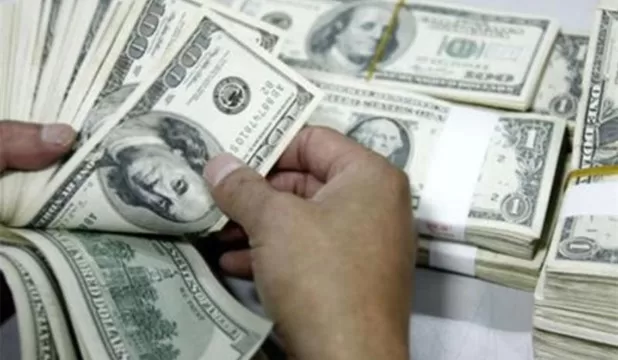In a memo, the leading financial services provider said the inflows include 11.2 billion dollars from direct foreign investments, 2.5 billion dollars from the International Monetary Fund, 10 billion dollars from international support packages, 2.5 billion dollars from asset sellouts and 5 billion dollars from investment portfolio yields.
He said Egypt’s foreign cash reserves hit a record of 46.5 billion dollars in July that are enough to cover imports of 7.7 months in addition to the surplus in foreign assets that hit 14.3 billion dollars for the first time in three years and the increase of the unofficial reserve deposits to hit 9.9 billion dollars.
The company also expected a remarkable improvement in trade deficit to reach 4.3 percent in the coming fiscal year backed by an increase in remittances to hit 30 billion dollars.
It added that remittances from Egyptians working abroad have seen a strong rebound following the latest money market decisions with April figures reaching $2.2 billion and May’s at $2.7 billion—an annual increase of nearly 74%. Additionally, tourism revenues are expected to rise to $15.8 billion, according to the company.
CAIRO- Beltone Holding Company said on Wednesday that Egypt has cash reserves enough to cover its financing needs that are estimated at 39 billion dollars in the coming fiscal year with total inflows worth 33 billion dollars.
Belton also anticipates a recovery in Suez Canal traffic in the first half of the next fiscal year, projecting total revenues of $6.6 billion compared to $6.8 billion in the previous year.
The company expected interest rates in Egypt to remain stable till the end of the current year, with a projected cut of about 900 points next year, including 400 points in the first half, which could negatively impact consumer spending and private investment in the upcoming fiscal year.
It underlined the importance of completing the International Monetary Fund’s (IMF) reviews of the ongoing reform program to maintain investor confidence and continued capital inflows.
The company referred to Egypt’s success in completing the third review, allowing the government to request an additional $1.2 billion in long-term, low-cost climate financing from the IMF’s Resilience and Sustainability Facility.






Discussion about this post